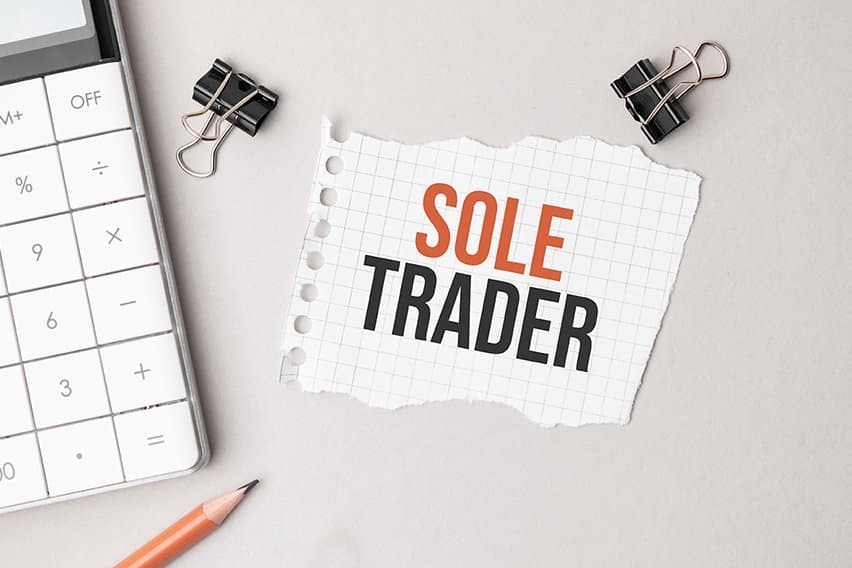
As a self-employed sole trader, you pay income tax on your total profit. To calculate this figure, you deduct any allowable business expenses. The more allowable expenses you have, the smaller your taxable profit, so the less income tax you need to pay.
What's Included as an 'Allowable Expense'?
Here's FreshBooks' round-up of HMRC's most common allowable business expenses for sole traders.
Travel Costs
HMRC's definition of work travel costs include:
- Expenditure on your own vehicle, like fuel, repairs, servicing, insurance, breakdown cover
- Public transport fares on trains, buses, planes and taxes
- Meals and hotel rooms for business trips
Business Premises and General Office Costs
When it comes to office consumables and buildings, HMRC's rule is that you can "Claim items you’d normally use for less than 2 years as allowable expenses."
Seems a bit broad! It includes property insurance, utilities, rent, security, water and business rates, and working from home tax relief. And everyday stationery like stamps, printer ink, software, phone and internet bills.
Business equipment costs - like computers - can be claimed, but how you claim depends on what kind of accounting system you use. Traditional accounting means that you use the capital allowances process to claim. And if you use cash basis accounting, they go through as an allowable expense. If you're not sure, talk to your accountant.
Financial and Legal Costs
The cost of hiring an accountant, solicitor, surveyor and architect are all allowable expenses - as long as they're only working on things in your business.
As well as professional experts, you can claim business expenses for other financial costs, such as: interest on bank and business loans, bank charges, credit card and overdraft charges, leasing payments, hire purchase interest, some other finance payments (like Islamic finance).
Stock
HMRC calls this 'reselling goods' and it means any raw materials or 'direct costs' you need to make your products. Also stock you buy to sell on.
Marketing and Subscriptions
Allowable expenses in the advertising and marketing category include website costs, free samples, mailshots, and putting ads in directories or newspapers.
Unfortunately, it doesn't include entertaining clients, suppliers or customers. You cannot claim any event hospitality as an allowable business expense.
Membership fees to professional bodies and Trade Unions, and subscriptions to trade journals are allowable business expenses. As long as they're related to your business - not just a hobby interest!
This doesn't include gym fees or political party membership.
Clothing Costs
If you need protective safety clothing or a uniform for work, they are allowable business expenses. And if you're an actor, you can include the cost of costumes.
Training Courses
You can claim the cost of training courses as an allowable business expense, but only if they directly relate to your current business. They must help you "improve the skills and knowledge you use in your business."
You can't claim for training courses that will help you expand into another area of business or that are designed to support starting a new business. Yes, it is a bit confusing.
Staff Costs
If you have employees, you can claim lots of their costs as allowable business expenses, including:
- Employer's National Insurance payments
- Salaries
- Bonuses
- Benefits and pensions
- Subcontractors
- Fees for using agency staff
Domestic staff, like cleaners or nannies, are not allowable business expenses because their work is inside your home, not your business.
Good To Know...
At this stage it's important to tell you a couple of extra pieces of information:
- This is not an exhaustive list
- Work expenses tax reliefs and allowances apply to employed taxpayers, as well as self-employed sole traders
- Your accounting system may affect how you claim, you need to check
- Sometimes you use something for work and home, like your car. You can claim tax relief for the business proportion of your usage.
- Some work expenses have slightly different evidence requirements, you need to check each one.
What Do I Need To Do?
You need to do 2 key things to make sure that you're claiming all your allowable business expenses and keeping your income tax bill as low as possible.
- Go through HMRC's list of allowable expenses carefully and find everything that applies to your business.
- Keep the evidence of these costs.
You declare all your allowable expenses on your self-assessment tax return. As a sole trader, you'll be completing this annually. The care you take submitting this form is crucial. Not only do you want to make sure you don't miss out on anything you're entitled to claim, but you don't want to claim anything that isn't allowable. All these expenses have their caveats and any mistakes during the self-assessment process can be financially penalised.
Seeking the advice of a tax expert or accountant before submission is very wise. Just give them access to your FreshBooks app, you don’t have to print anything out or have separate books just for them.
If you're using FreshBooks, keeping your evidence in order is already done. Just keep filing those receipts in your app and it's all there for you in a couple of clicks. HMRC doesn't ask you to send all this evidence with your tax return, but you need to know you can prove your claim if there's any questions raised. It just makes sense to keep digital records that you continuously update. Rather than a box full of receipts you need to organise at the end of every financial year!
There’s more help about sole trader taxes and your business in our full guide.












